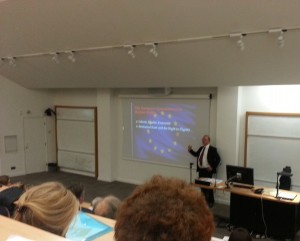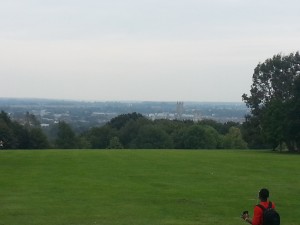Hello prospective KLS postgrads. It’s been almost a month and a half since I have started my postgraduate degree at the University of Kent. In this blog post I will explain the reasons why I have decided to pursue a postgraduate law degree. Secondly, I will share why I have decided to opt for a master’s degree at the University of Kent. Given that I am an overseas student and I did not have the chance to attend one of the Postgraduate Open Days as I was working full-time in a financial institution, I will reveal whether the Kent Law School has met my expectations.
Why do you need to do a postgraduate law degree?
During my undergraduate degree I have realised that I have the potential and enthusiasm to work as a researcher for international organisations such as the EU or the Council of Europe. However, as you might know the job market in international organisations is highly competitive which is why just an undergraduate degree is not enough! I can confirm that because of my personal experience. In January 2013, I had an interview for the position of an assistant for a Maltese MEP at the European Parliament in Brussels. Almost all the candidates had at least one taught postgraduate degree and some even had a PhD. In this highly competitive job market you need to find a way to stand out from the crowd either with your foreign language skills and work experience or your education and expertise. After this interview I knew that I had to focus on my education and I perceive a good LLM from a well-known and respected university as a way to get the job I want.
Why do you need to do your postgraduate degree at Kent?
It is well-known that KLS was rated as the 6th best Law School in the UK in the 2008 Research Assessment Exercise and recently it has been rated as the 10th best law school in the UK in the Times 2014 Good University Guide. In addition to that, KLS Law Clinic has won numerous Attorney General’s Awards (most recently in 2012) and received a prestigious Queen’s Anniversary Award in 2008. This is fabulous, isn’t it? When I have learned about all these interesting facts I was really impressed and I am sure you are too. KLS is one of the very few law school’s in the UK where you can actually find experts in almost every single area of law! I have hinted above that my research interest is predominantly focused on European Law. As you can guess before applying to Kent Law School I have looked for some information regarding the lecturers in KLS. This is actually the part which had a significant influence on me. For example, Professor Anneli Albi has been awarded 1.2 million euros by the European Research Council for a five-year research project titled ‘The Role and Future of National Constitutions in European and Global Governance’. Our lecturer in EU Constitutional and Institutional Law, Mr Martin Hedemann, has also worked as an administrator in the Environment Directorate-General of the European Commission between 2001-2003. As you can see the teaching staff at the University of Kent have not only experience in academia, but also in real practice! This demonstrates that we are studying and researching the law in line with current economic, social and political problems facing the world. If you look at the on-going research project at KLS, you will understand what I mean.
Did Kent Law School meet my expectations?
KLS has not only met my expectations, but at times exceeded them! I am not saying that because I study here but because of all interesting events I have attended. At the beginning of the year we had a welcome reception during which I had the chance to meet and socialise with my new colleagues.
This was a unique experience. KLS is a very dynamic law school and we have lecturers and students from all over the world which is fascinating as you have the opportunity to find out about other cultures and other jurisdictions. For example, this is a picture taken during the Welcome Reception (LLM students from Thailand, Greece, Bulgaria and Germany).
This is not all! Almost every week we have guest speakers which include barristers, solicitors, judges and academics. I have recently attended an open lecture on human rights protection in the UK given by Dr Jonathan Cooper OBE. First of all, I was very impressed by the credentials of the guest lecturer as not only he is a very successful barrister who specialises in human rights law, but he was also one of the few specialists who drafted the Human Rights Act 1998. This was an intellectually stimulating event as I found out some interesting facts. For example, I did not know that the European Convention on Human Rights was drafted by David Maxwell – Fyfe who is also known as Lord Kilmuir.
 In essence, this was a very important event for me as Jonathan is an expert in the EU Charter of Fundamental Rights and human rights and equality rights in the EU. He has been instrumental in training public authorities and lawyers in the UK on the implementation of the Human Rights Act 1998 and was responsible for devising and carrying out human rights training for various UK government departments, including the Foreign & Commonwealth Office (FCO) and the Ministry of Justice (MoJ).
In essence, this was a very important event for me as Jonathan is an expert in the EU Charter of Fundamental Rights and human rights and equality rights in the EU. He has been instrumental in training public authorities and lawyers in the UK on the implementation of the Human Rights Act 1998 and was responsible for devising and carrying out human rights training for various UK government departments, including the Foreign & Commonwealth Office (FCO) and the Ministry of Justice (MoJ).
In conclusion, as you can see pursuing a postgraduate degree is a good investment in your future and intellectually rewarding experience. I am really happy with the choice I have made and I really hope that you will follow my steps!

